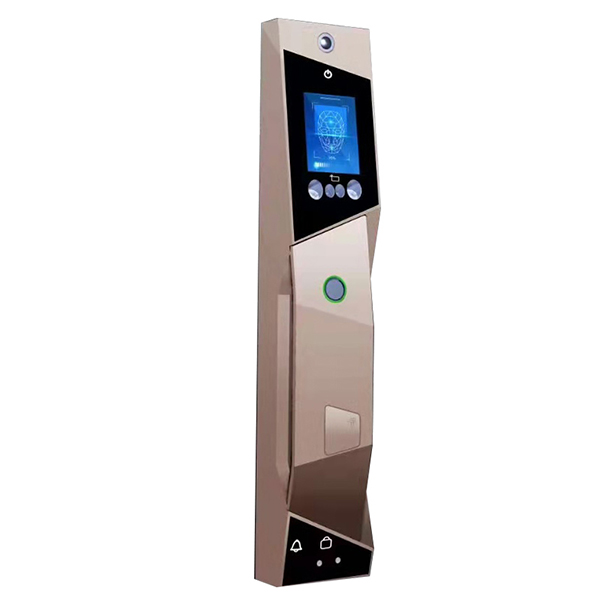Fortifying Your Home: Security Measures in Smart WiFi Door Locks with App Access
2024-07-10
The advent of smart home technology has brought unparalleled convenience and control to homeowners, but with it comes the need for robust security measures to protect against unauthorized access and hacking. The Smart WiFi Door Lock with App Access is designed with advanced security features to ensure your home remains safe from potential cyber threats and physical intrusions. In this blog, we'll explore the key security measures that protect these smart locks from unauthorized access and hacking.
1. End-to-End Encryption
Smart WiFi Door Locks use end-to-end encryption to secure all communication between the lock, the mobile app, and the central server. This encryption ensures that any data transmitted is unreadable to anyone who might intercept it. The use of strong encryption protocols, such as AES-256, provides a high level of security, making it extremely difficult for hackers to access your lock’s data.
2. Two-Factor Authentication (2FA)
To further enhance security, many Smart WiFi Door Locks offer two-factor authentication (2FA) for app access. With 2FA enabled, users must verify their identity through a second method, such as a code sent to their mobile device, in addition to their password. This added layer of security helps prevent unauthorized users from accessing the lock's controls, even if they manage to obtain the password.
3. Secure Boot and Firmware Updates
Smart WiFi Door Locks are equipped with secure boot mechanisms to ensure that only authenticated and authorized firmware can run on the device. This prevents malicious software from being installed on the lock. Regular firmware updates are also critical, as they provide patches for any discovered vulnerabilities. Many smart locks offer over-the-air (OTA) updates, ensuring that your device always has the latest security enhancements.
4. Tamper Detection and Alerts
Physical security is just as important as digital security. Smart WiFi Door Locks are designed with tamper detection features that trigger alerts if someone attempts to physically tamper with the lock. These alerts are sent to the user's smartphone, providing real-time notifications of any suspicious activity. Some models also have built-in alarms that sound if tampering is detected, deterring potential intruders.
5. Role-Based Access Control
The ability to manage and restrict access is crucial for maintaining security. Smart WiFi Door Locks allow homeowners to set up role-based access control, granting different levels of access to different users. For example, you can provide temporary access to service providers or guests and revoke it once their visit is over. This feature ensures that only authorized individuals can enter your home.
6. Biometric Authentication
Many Smart WiFi Door Locks come with biometric authentication options, such as fingerprint scanning. Biometric data is unique to each individual, making it a highly secure method of access. Unlike PIN codes or passwords, fingerprints cannot be easily replicated, providing an additional layer of protection against unauthorized entry.
7. Regular Security Audits
Reputable smart lock manufacturers conduct regular security audits and penetration testing to identify and address potential vulnerabilities in their products. These audits are performed by cybersecurity experts who test the lock's defenses against various attack vectors. The findings from these audits are used to improve the lock's security features continuously.
8. Cloud Security Measures
For smart locks that rely on cloud-based services, robust cloud security measures are in place to protect user data. These measures include secure data storage, encrypted communications, and stringent access controls. Cloud service providers also implement regular security updates and monitoring to prevent and detect any unauthorized access attempts.
Conclusion
The Smart WiFi Door Lock with App Access offers a blend of convenience and security that traditional locks cannot match. By incorporating advanced security measures such as end-to-end encryption, two-factor authentication, secure boot, tamper detection, role-based access control, biometric authentication, regular security audits, and robust cloud security measures, these smart locks provide comprehensive protection against unauthorized access and hacking. When choosing a Smart WiFi Door Lock, it's essential to consider these security features to ensure that your home remains safe and secure in the digital age.



